Technology has always played a pivotal role in the agriculture industry. So it goes without saying that as technology has gotten increasingly advanced, so has agriculture. Here are some of the most innovative agriculture products of 2022.
1. John Deere’s Autonomous Tractor
At the 2022 Consumer Electronics Show (CES), John Deere announced one of the most innovative agriculture products of the year: a fully autonomous tractor. The machine combines the company’s 8R tractor, TruSet-enabled chisel plow, GPS guidance system, and new advanced technologies. The tractor’s six pairs of stereo cameras detect obstacles and distance and continuously check its position relative to a geofence.
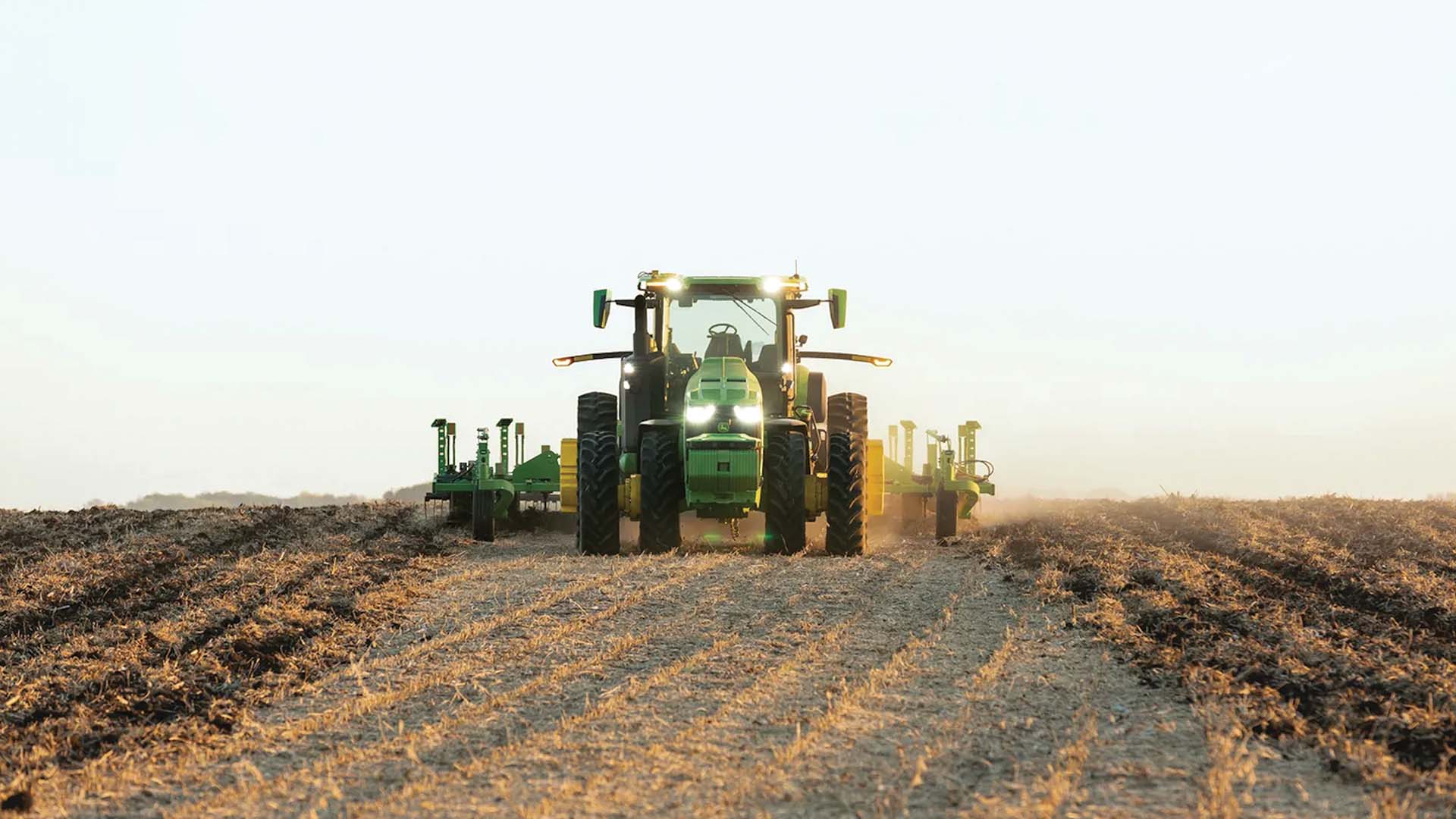
To use the tractor, farmers simply need to transport the machine to the fields and configure it for autonomous operation with the John Deere Operations Center. Once it’s set up, the farmer can leave the field and focus on other tasks while monitoring the machine from their mobile device.
John Deere clearly expressed its goal with this tractor at the CES—to feed the world. The global population is expected to grow from about 8 billion to nearly 10 billion people by 2050, increasing the global food demand by 50 percent. As a result, farmers must feed this population with less available land and skilled labor, needing all the help they can get. This tractor follows suit with other industries implementing autonomy into their fleet, such as Caterpillar’s autonomous mining vehicles.
2. Equinox’s Drones Aerial Imaging Drones
While satellites offer the big picture, aerial drones offer faster and more comprehensive details on things like insect damage, nutrient deficiencies, invasive species, and crop yield estimates.
For example, startup Equinox’s Drones offer services like crop surveillance, aerial inspection, data processing, and data analysis. They do this with the help of ortho-mosaic maps, 3D point clouds, digital models, contour maps, and more. The drones’ images and videos are processed to facilitate aerial inspection of crops and data analysis. This enables farmers to make better decisions about their agriculture.
Locating citrus trees affected with phytophthora (a fungal disease).
Some of Equinox’s drones have already located citrus trees affected with a fungal disease, guided drainage and irrigation planning, assessed flood damage and documentation for the Government, and more.
3. Lely’s Automated and Connected Systems
A buzzword in technology today is connectivity, which Lely brings to agriculture. This robotics company brings automated and connected systems to dairy farmers. Their agriculture solutions connect the entire dairy farm on a digital system, synchronizing data of everything from the milk quality, cow health, feed efficiency, and more.
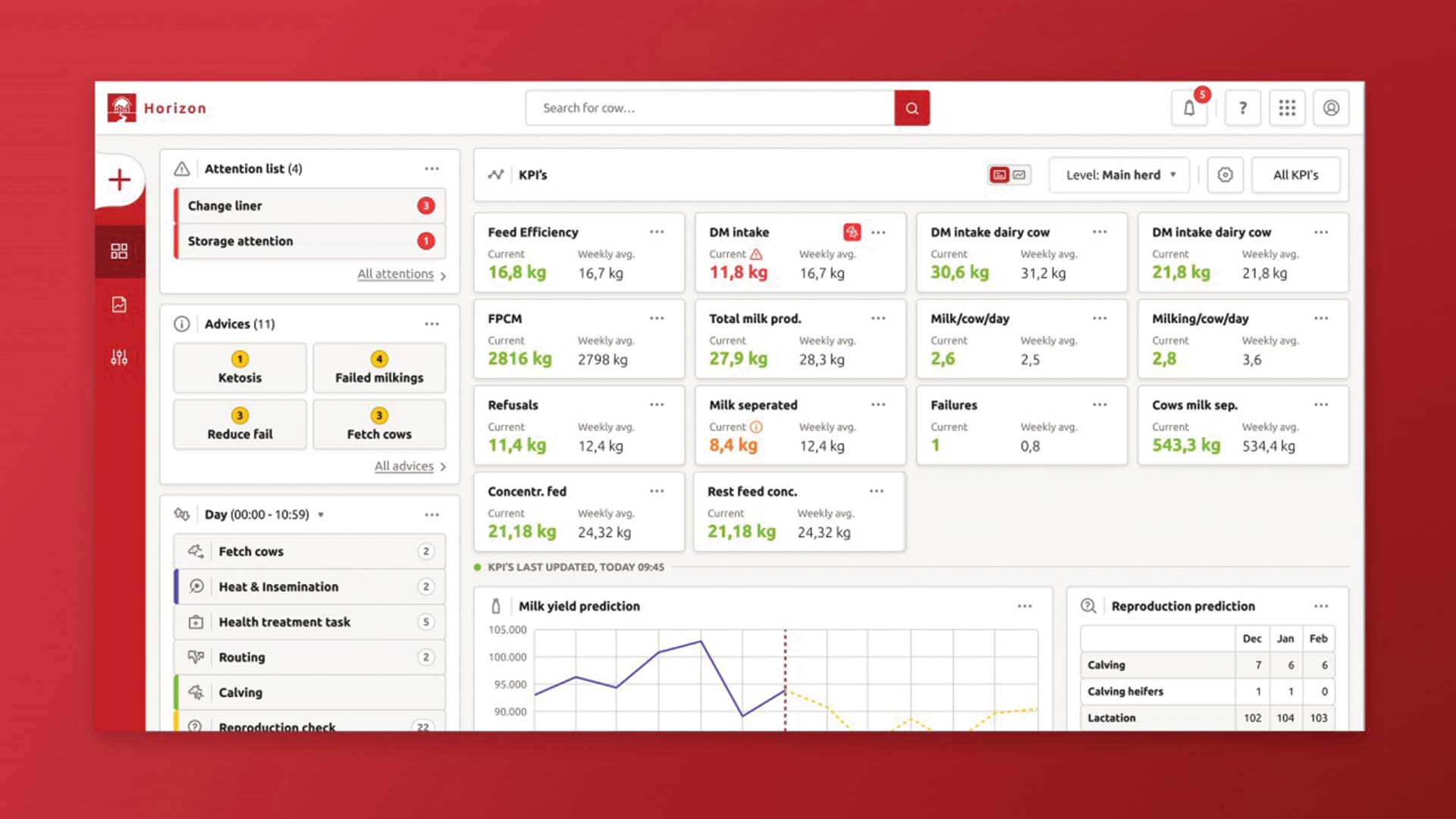
Photo Credit: Lely
For example, in Lely’s system, the cows have transponders that keep track of feed, milking, housing, and health. This system saves labor and allows the farmer to know exactly where the animal is in the production scheme.
Experts predict that Lely’s dairy farm system can be applied to the broader agriculture industry. The system’s connectivity and automation can eventually enable a new generation of farmers and agriculture to easier and more efficiently cultivate a farm.
4. OnePointOne’s Vertical Aeroponics
Aquaponics and hydroponics are well-known innovative agriculture technologies and products, but have you heard of aeroponics? Aeroponics grows plants in the air or mist environment without the use of soil or water. In aeroponics, the roots of the plant extend in the air, and the nutrient solution is directly applied to the roots, giving the plants exactly what they need to survive with little to no waste.
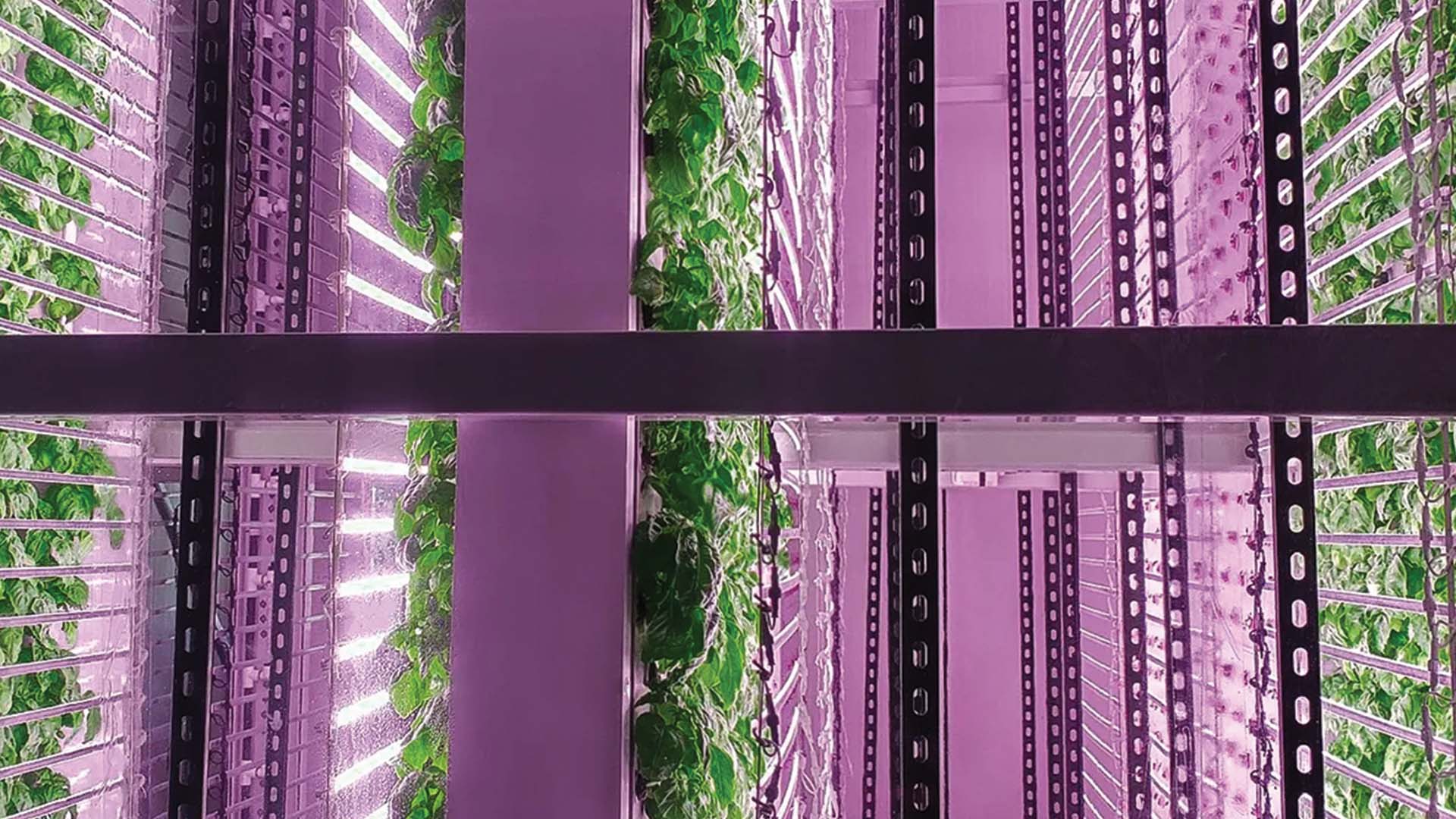
For example, OnePointOne builds a vertical plane aeroponics farming space to provide space-saving, water-saving, and labor-saving solutions. With their cultivation technology, 99 percent less water is used while planting 250 times more plants per acre. The technology is also 100 percent free of pesticides and herbicides. They also deploy hyperspectral high-resolution imagery to analyze plant quality at a molecular level. The startup also provides personalized farming and nutrition services to farmers.
5. Nexus Robotics’ Weeding Robot
Weeding robots, like Nexus Robotics’ Le Chevre, can accurately detect and remove weeds from the field. Thanks to the robots’ deep learning algorithms and cameras, they can differentiate between weeds and crops. This means that it only sprays herbicides and pesticides where they are needed with precisely how much they need. In addition to reducing pesticide and herbicide use, this innovative agriculture product controls and prevents herbicide-resistant weeds.
Le Chevre autonomously removes the weeds without damaging the crops. Additionally, it collects data about the crops’ growing conditions, enabling farmers to make better-informed decisions about their land and agriculture. La Chevre is currently a prototype, with the hope to put it into production soon.
6. John Deere’s AI-Integrated Sprayers
Similarly, John Deere’s AI-integrated See and Spray technology, released in the summer of 2021, also minimizes both fertilizer and herbicide applications. This precision control system relies on machine vision, machine learning, and robotics to identify weeds and crops alike.
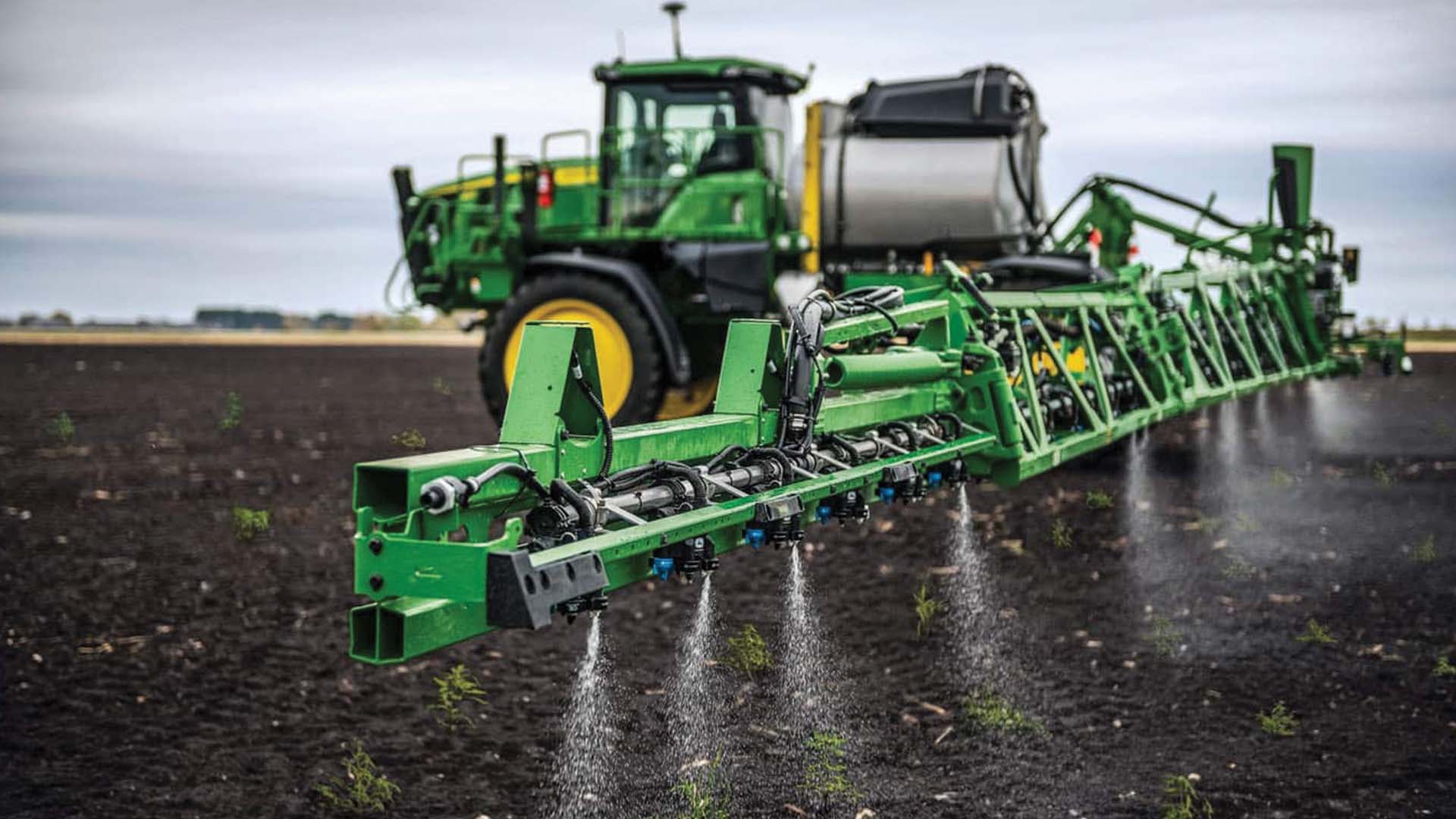
It does this with two sets of cameras that calibrate about 20 times per second while the machine runs at an average speed of 12 mph; the technology has a database of over one million images of weeds.
Once the sprayer identifies the weed within this database, it turns on the nozzle to dispense a small amount of fertilizer, fungicide, or herbicide directly on the weed to maximize crop yield. It reduces application rates by as much as 77 percent, lowering costs and improving environmental impact.
7. Edete’s Artificial Pollination
The world’s honey bee population is quickly dwindling. Additionally, honey bees can only work in optimal weather conditions: above or below 15 degrees Celsius (59 degrees Fahrenheit), no rain, daylight, and attractiveness of the crop relative to the competing flora. However, about 75 percent of the world’s crops rely on animal pollination, and you have a bee to thank for about one out of every three bites of food that you take. This creates a massive pollination and food supply problem.
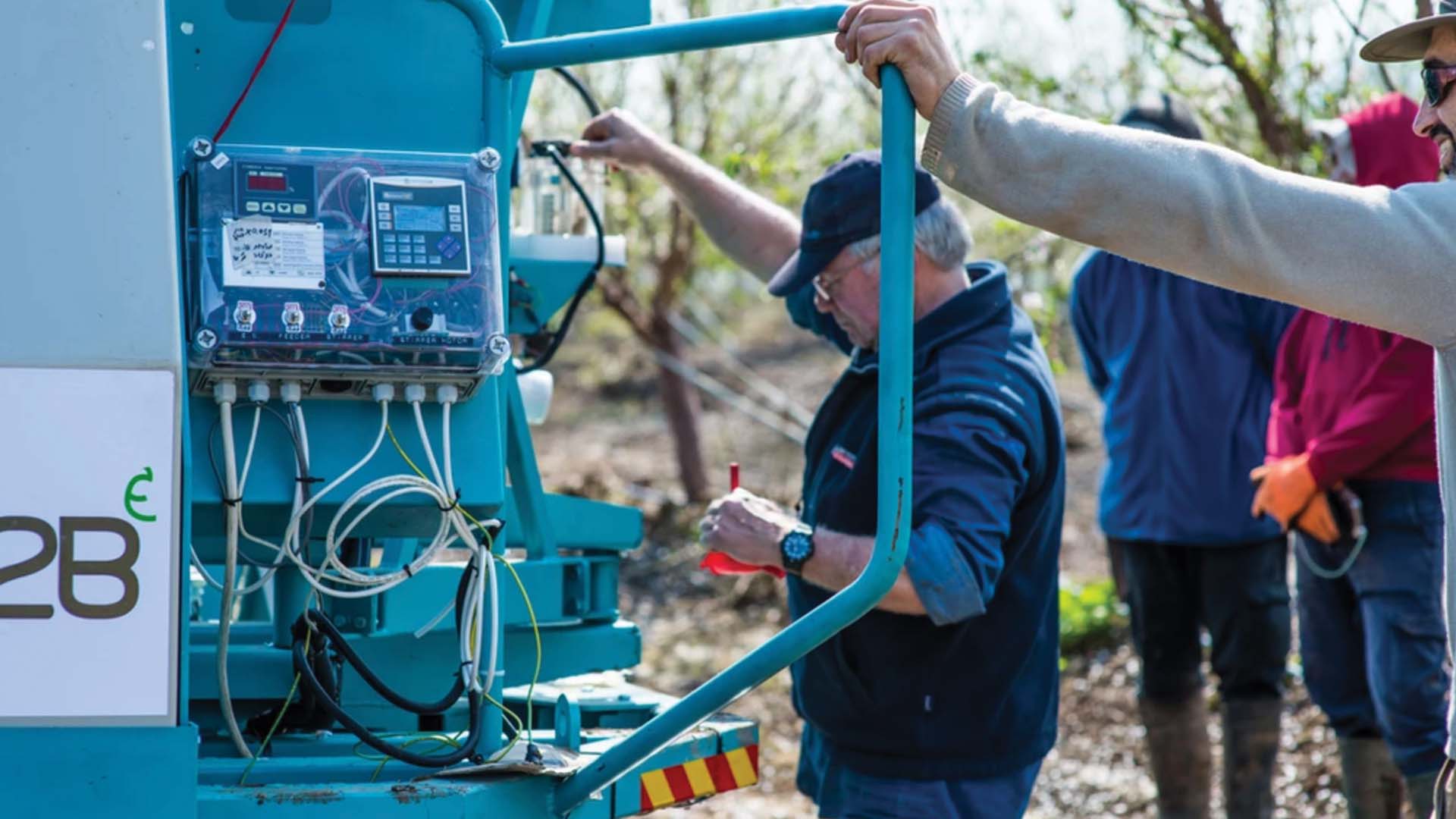
As a plan B, Edete Precision Technologies for Agriculture created a high-efficiency artificial-pollination-as-a-service solution. This end-to-end service mirrors the actions of bees by harvesting pollen and then distributing it. The artificial pollination solution will provide optimal pollination services to companies and growers.
The company has already successfully demonstrated Artificial Pollination fertilization that increased yield in almond orchards with their mechanical pollinator prototype. The company also successfully used its robot pollinators to increase yields in pistachio orchards by 24 percent. For pistachio farmers, this 24 percent increase in yields equates to an additional $1,850 in income.
8. Bowery Farming’s BoweryOS
Bowery Farming is on a mission to democratize access to high-quality, local, safe, and sustainable produce by building smart indoor farms near cities. Inside these precisely controlled, vertical farming environments, the produce is fresher and free of GMOs and pesticides. Their innovative product that makes it all happen? BoweryOS.
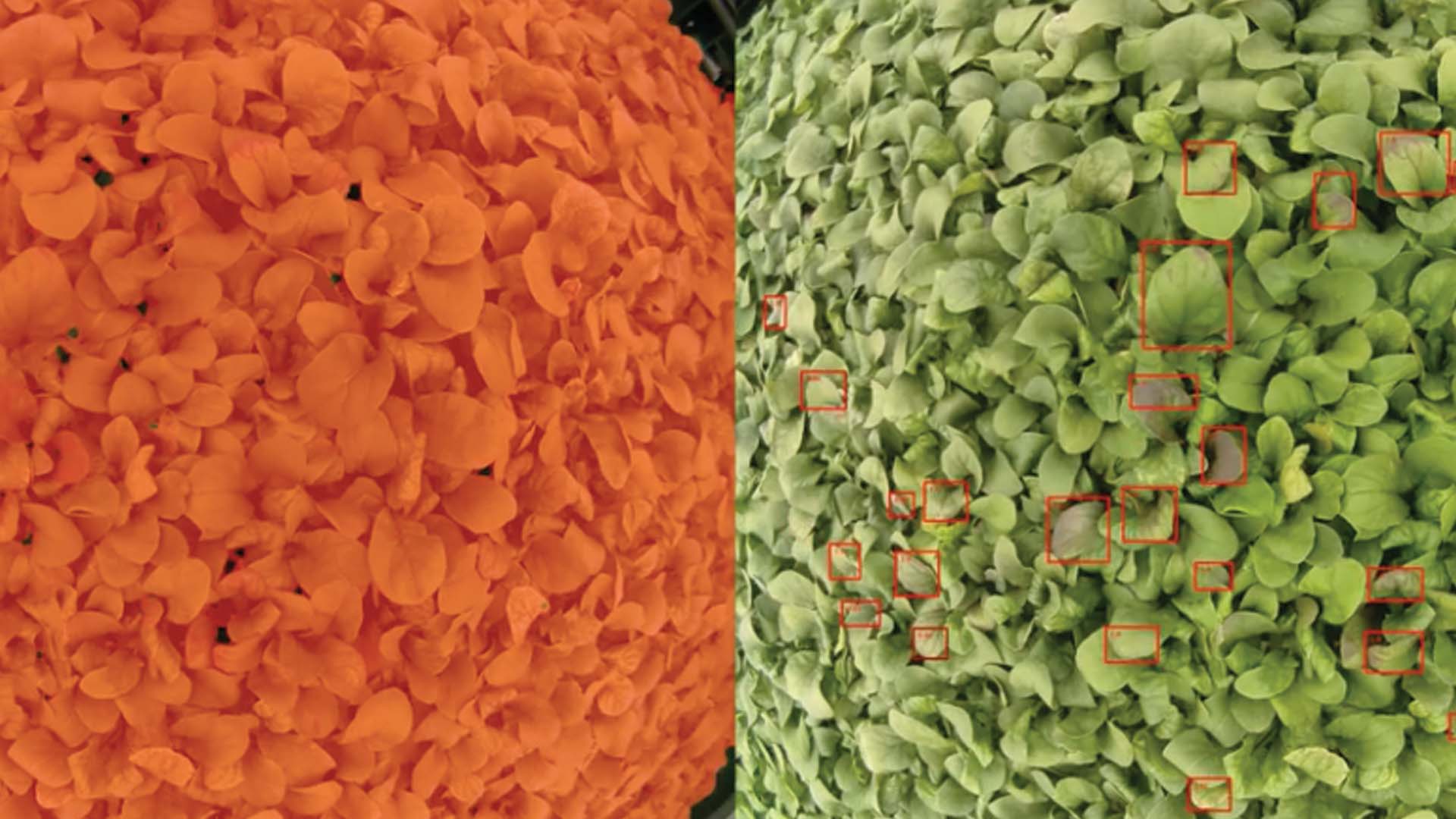
BoweryOS integrates software, hardware, sensors, AI, computer vision systems, machine learning models, and robotics to orchestrate and automate all of Bowery’s operations. For example, BoweryOS’ AI uses historical data to continuously tweak growing the conditions of crops, creating the healthiest plants with the highest crop yields, all while using as little resources as possible. As a result, Bowery’s farms use less waste, water, and land as compared to traditional agriculture.







